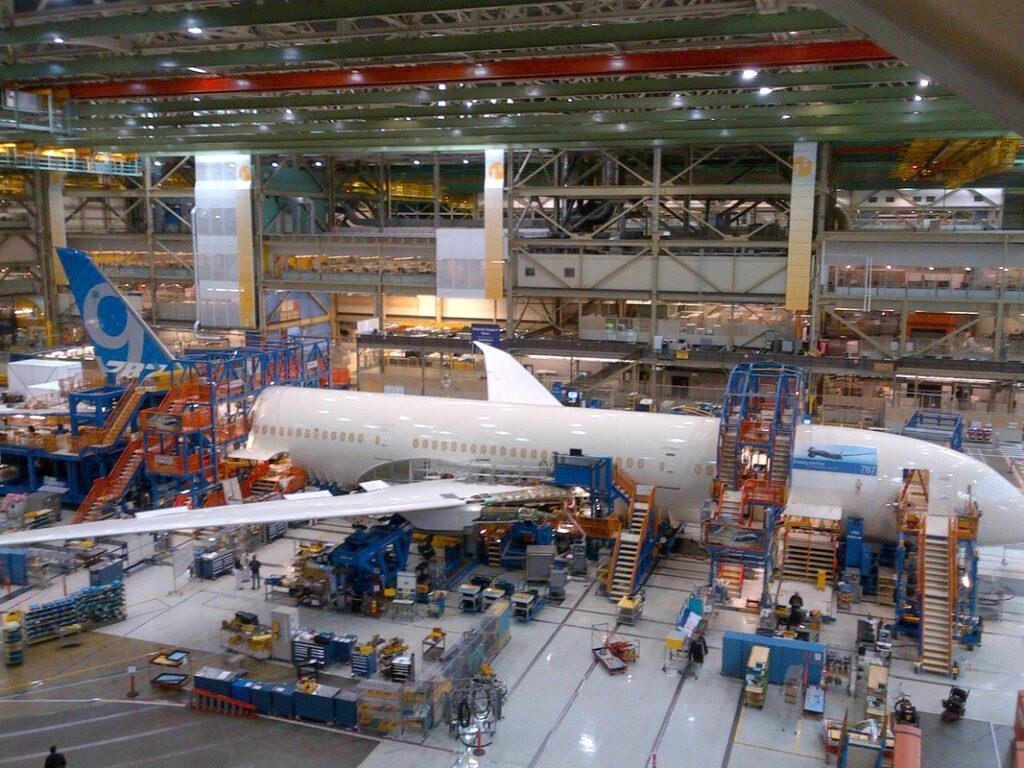
Intelligentere E-Mails, schnelleres Geschäft. RFQs, Angebote, Bestellungen und mehr automatisch markieren, analysieren und beantworten – sofort.
Trends
Juneyao Airlines Defers Boeing 787-9 Delivery Amid China-US Tariff Tensions

Juneyao Airlines Defers Boeing 787-9 Delivery Amid China-US Tariff Tensions
Trade Dispute Forces Postponement
Juneyao Airlines has indefinitely postponed the delivery of a Boeing 787-9 Dreamliner, a decision that highlights the growing impact of escalating trade tensions between China and the United States on the global aviation sector. The aircraft, valued at approximately $120 million, was initially slated to join Juneyao’s fleet by mid-May 2025. However, the imposition of steep tariffs by both countries has significantly increased costs, compelling the Shanghai-based carrier to reconsider its investment timeline.
The deferral stems from the ongoing trade dispute, with the US enforcing high tariffs on Chinese goods and China responding with a reported 125% levy on US-made products, including commercial aircraft. These tariffs have rendered the import of the Boeing 787-9 prohibitively expensive for Juneyao Airlines. By delaying the delivery, the airline aims to mitigate immediate financial pressures and maintain tighter cost control amid an uncertain economic environment.
This move is part of a broader pattern of companies adjusting their strategies in response to the tariff standoff. For instance, Tesla has also paused imports from the US to China under similar pressures. The persistent tensions between the world’s two largest economies show little sign of abating, forcing businesses like Juneyao to adapt accordingly.
Impact on Expansion and Industry Outlook
The Boeing 787-9 was a cornerstone of Juneyao Airlines’ strategy to expand its long-haul network, particularly to European cities such as Brussels and Athens. The aircraft’s advanced fuel efficiency and spacious cabin were expected to enhance the airline’s competitiveness in the international market, especially as global travel demand recovers. With the delivery now deferred, Juneyao’s expansion plans face delays, potentially limiting new route offerings and flight options for passengers in the near term.
Currently, Juneyao operates a fleet exceeding 100 aircraft, predominantly Airbus A320 family jets, alongside nine Boeing 787-9s already in service. The postponement of the new delivery slows the airline’s growth trajectory at a critical juncture for the industry’s recovery.
The announcement has also had wider repercussions. Boeing’s stock declined by approximately 2% following the news, reflecting investor concerns about potential disruptions in the Chinese market. China is a vital market for Boeing, expected to represent 20% of global aircraft demand over the next two decades. Should other Chinese carriers follow Juneyao’s example, Boeing could face significant challenges to its sales and supply chain stability.
While no other Chinese airlines have publicly announced similar delays, the situation remains fluid. The aviation industry is closely monitoring developments, as ongoing trade tensions threaten to reshape fleet planning and delivery schedules on a global scale.
Navigating a Complex Environment
In response to the deferral, Juneyao Airlines is focusing on optimizing its existing fleet and may explore alternatives such as leasing aircraft or adjusting route networks to sustain operations. Meanwhile, Boeing is likely to pursue avenues to alleviate trade barriers and safeguard its market position in China.
The Juneyao deferral underscores the extensive consequences of global trade disputes on corporate decision-making within the aviation sector. As tariffs alter the competitive landscape, airlines must adapt to protect their financial stability. For travelers, this may result in fewer choices or increased fares as carriers absorb higher costs. The episode illustrates how geopolitical dynamics can directly influence the future of air travel, compelling industry stakeholders to navigate an increasingly uncertain environment.